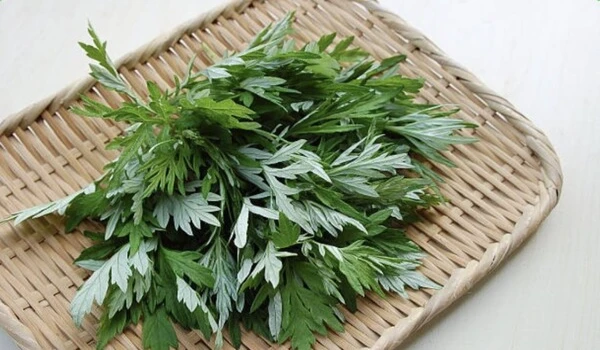Mugwort benefits, side effects, season
Mugwort Nutrition

| Mugwort (100g) Nutrition | |||
| Carbohydrate | Protein | Fat | Calories |
| 4.3g | 2g | 0.2g | 22kcal |
| Main Nutrition | Vitamin A, C | ||
| Main Benefits | Improves skin elasticity, aids digestion, relieves menstrual pain and irregularities | ||
| Side Effects | Because it has a warming nature, it is recommended to consume it in small amounts if you have a lot of body heat. | ||
Mugwort is a plant belonging to the Asteraceae family. It has a unique scent and is used as food, but it is also used as a medicine because it has a detoxifying effect. Mugwort, which has strong vitality, has a habit of growing in groups in sunny places, and has fluffy white hairs on its stems and front and back leaves. It can be dried and brewed into tea and eaten, or mixed with rice and made into rice cakes. It can also be consumed in a variety of ways, such as adding it to soup or pancakes.
Mugwort benefits

1. Women’s Health
Mugwort has warming properties and is helpful for women’s health. For women who suffer from irregular menstruation or severe menstrual pain, eating mugwort helps relieve symptoms. It also helps prevent early menopause and reduces diseases such as hot flashes caused by menopause. Mugwort helps maintain uterine health by stimulating the production of essential hormones that allow the uterus to function normally.
2. Improved digestive function
Mugwort stimulates blood flow to the stomach and helps with digestion. Wormwood also increases the amount of bile secreted by the liver. Bile helps transport and excrete toxins from our body, which greatly benefits our digestive system by aiding in the overall digestion and assimilation process. Additionally, when mugwort is consumed, it is used as a natural digestive aid as it relieves indigestion and acute abdominal pain.
3. Relieve arthritis
Mugwort also helps relieve arthritis. Grinding mugwort and applying it directly to the affected area can help relieve pain from degenerative arthritis. It is also said that when people suffering from osteoarthritis receive moxibustion treatment made with mugwort, their joint pain can be reduced. Mugwort has anti-inflammatory properties, so drinking tea made with dried mugwort can be expected to act as a natural anti-inflammatory and pain reliever.
4. Skin Health
Mugwort is often used as a medicine, and it is also effective in promoting skin health, so it is often used as a cosmetic. Mugwort has anti-inflammatory and soothing effects that help soothe the skin. It also helps improve blood circulation and is effective for skin health. Mugwort is rich in vitamins A and C, which help moisturize dry skin and create elastic skin.
5. Diuretic effect
Mugwort has properties that stimulate urination. Urination is the best way to remove toxins from the body. It also helps excrete not only toxins but also sodium from the body, allowing various harmful substances in the body to be excreted through urination. It can also help cleanse the kidneys and bladder, preventing and reducing many infections.
6. Control of body balance
Rich in vitamins, it helps improve body immunity and regulate body balance. In addition, consuming healthy dietary fiber can increase metabolism, burn fat, and increase physical vitality, allowing you to live a healthy day.
season
Mugwort is in season from March to May, when it has the strongest scent. If you eat it with mugwort tea or mugwort rice cake, you can feel its strong aroma.
Side Effect
- Mugwort contains a small amount of neurotoxic substances, so if consumed excessively, side effects such as acute diarrhea or inflammation may occur, so caution must be taken.
- Mugwort is a plant in the Asteraceae family. People who are allergic to Asteraceae plants should avoid consuming mugwort because it can cause an allergic reaction.
- It has a warm nature, so it is better for people who have a lot of body heat or whose face gets hot easily to avoid consuming it.
References
🔹Health: Mugwort: Benefits, Uses, Side Effects, and More
🔹Gaia Herbs: The Benefits of Mugwort